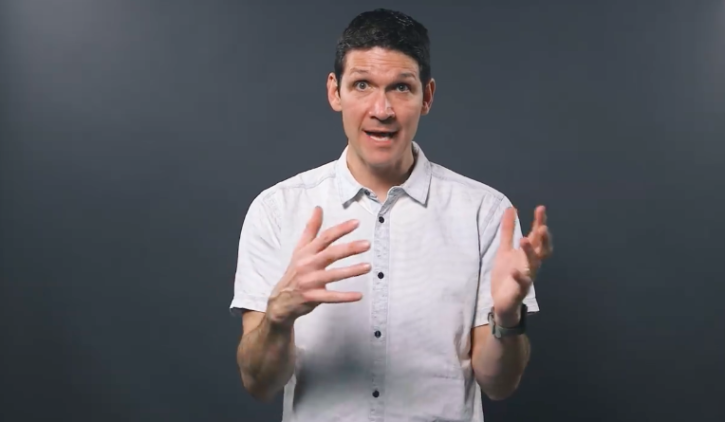
A certain clip from Matt Chandler in which he appears to be doing very clear “product placement” is raising eyebrows around the Internet. That same clip is now being used by the company – a phone app – to advertise it.
Product Placement, also known as embedded marketing, is a marketing technique in which a product or service is advertised within another work, like a movie, sitcom, or song. Product Placement is a particularly potent form of advertising because consumers are not braced for the solicitation and often don’t pick up on it an advertisement, but serves as a powerful subliminal suggestion. In an age of commercial-less streaming services and digital recorders that allow viewers to fast-forward through commercials, product placement is increasingly important to advertisers and they’re willing to pay a top premium.
But tell us this doesn’t look like classic product placement but in a sermon…
Right. It’s “impromptu.” And now it’s being used in a viral marketing campaign by Dwell on Facebook. And it happens to be listed under “resources” for Chandler’s church and his wife’s side ventures.
Lauren Chandler lists the Dwell App as “resources” on the “Listening Notes” for her meditation podcast.

Dwell was founded by Josh and John Bailey of Dallas Texas, which is the home of Chandler’s Village Church.
Chandler has also been dropping the names of books and “resources” in sermons – as he does in this very sermon – in odd, out-of-the-ordinary and out-of-place ways. The books don’t seem to have anything to do with the sermon whatsoever, just a, “Oh, by the way, here are some products for you to buy” sort of way.
Many of Chandler’s followers have noticed it, and don’t know why he’s stopping in his sermons to talk about products.
Is Chandler using his sermons to engage in product placement? If he is, would it scrape the seedy underbelly of the very bottom of the megachurch movement, turning sermon exposition into pure commercialism?










